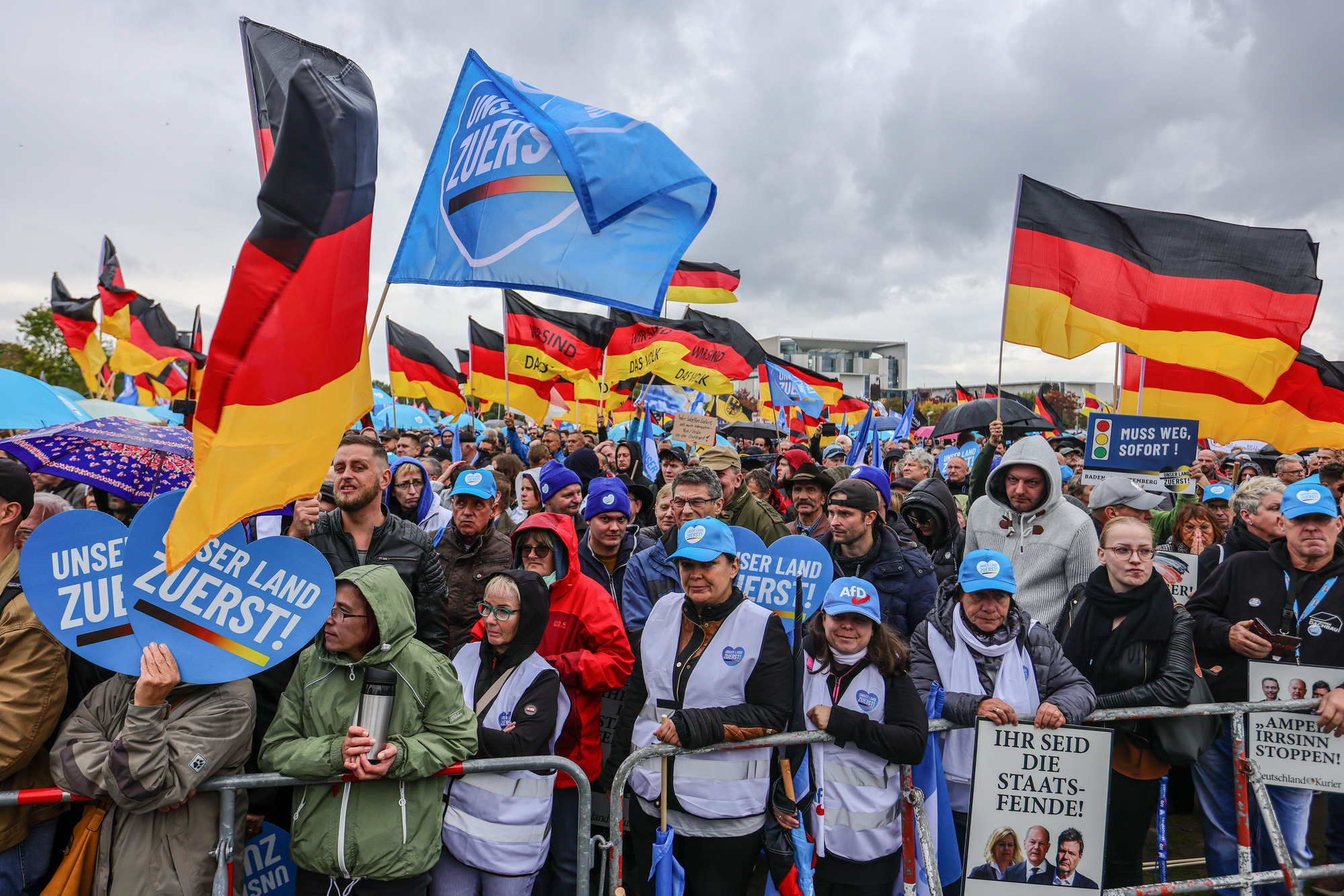Police in Germany’s Ruhr region will have their hands full this weekend. While Germany and England are playing their next Euro 2024 matches in Dortmund and Gelsenkirchen respectively, nearby Essen will host one of the most contested political events of the year.
The party conference of the Right-wing Alternative für Deutschland (AfD) this weekend is expected to draw up to 80,000 protesters, requiring a police presence of 4,000 officers. Arguments inside the conference may be no less ferocious than those on the streets.
That there is hostility in Germany against the idea of a political force to the Right of the Christian Conservatives won’t surprise anyone. Given the country’s Nazi past, far-Right sentiments have long been regarded as taboo. Accordingly, some see disrupting the AfD conference as their civic duty.
The interior minister of the state of North Rhine-Westphalia has warned that hundreds of “violent disrupters from the far-Left scene” may turn up in Essen. But it’s not just extremists who feel that the very existence of the AfD is an affront to democracy. The city of Essen had tried to prevent the conference but was told by the courts that the AfD had to be treated like any other political party. The energy giant E.on said its Essen HQ will feature projections and rainbow flags this weekend.
Large as it may be, the public protest is unlikely to trouble the AfD. Essen’s police chief has announced that his forces will “protect any gathering — regardless of whether we like their opinion or not”. So far the protests also haven’t dented the party’s popularity. In a survey this week, the AfD was up by one point, to 17%.
A bigger worry for the leadership will be internal strife. In the European elections earlier this month, support had risen to a historic high of 16%, putting the party in second place. Outwardly, the AfD was jubilant. Inwardly, many members are disappointed, seeing the result as beneath their potential. One senior party figure told the newspaper Die Welt: “The result hurts. We dropped a huge amount of percentage points… Questions of personnel have tainted our election campaign.”
Personnel is important for the AfD in its quest to appear electable to social conservatives. Due to repeated scandals, the party is struggling to break centre-right ground, particularly in former West Germany — as was evident in the European elections. After the erstwhile lead candidate Maximilian Krah had claimed that members of the Nazi SS were not necessarily criminals, he was considered a liability by the leadership and withdrew. But allegations of links to Russia and China stuck.
There have also been protracted battles to ostracise extremists such as Andreas Kalbitz, a former AfD leader in the eastern state of Brandenburg. Reported to have links to neo-Nazi organisations, he was expelled from the AfD in 2020. But he was still trying to stand for the party in regional elections this autumn. This failed since he had no more support in the party, but the media reports added to the image of internal rifts.
Another sign of how split the AfD is came this week when it emerged that three of its councillors in the Brandenburg town of Lauchhammer wanted to join forces with the extremist party Die Heimat (The Homeland). The AfD is now seeking to expel the trio even though co-leader Tino Chrupalla seemed to have been involved in the plan.
At the conference this weekend, both Chrupalla and co-leader Alice Weidel stand to be re-elected in their positions. Weidel is said to be safe since she is regarded as the face of the AfD. Chrupalla, on the other hand, is rumoured to be more likely to be ousted, which would make the party’s leadership issues even more visible to voters.
It seems internal division is a bigger threat to the AfD than protests and rainbow flags on the streets of Essen. But neither will take away from the real driver behind the party’s rise: widespread public discontent with the status quo. The question of who will be able to pick up the swathes of angry voters remains wide open.











Join the discussion
Join like minded readers that support our journalism by becoming a paid subscriber
To join the discussion in the comments, become a paid subscriber.
Join like minded readers that support our journalism, read unlimited articles and enjoy other subscriber-only benefits.
Subscribe